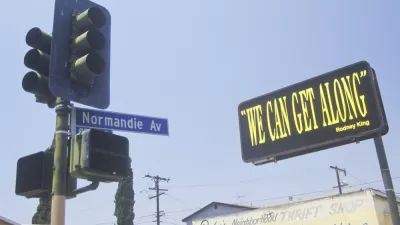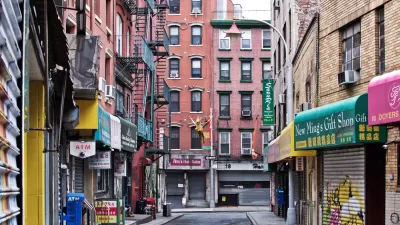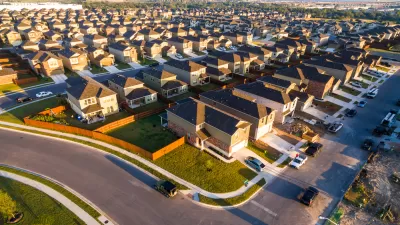Author Kurt Andersen's new book describes the last three decades as a period of wanton growth, from homes to waistlines. He sees the economic bust as a way to return sanity and size appropriateness.
From the book:
"It's as if we decided that Mardi Gras and Christmas are so much fun we ought to make them year-round ways of life. We started living large literally as well as figuratively. From the beginning to the end of the long boom, the size of the average new American house increased by half, even as the average family became smaller. During the two decades ending 2007, the average new American car got 29 percent heavier, 89 percent more powerful, and 2 percent less efficient. Meanwhile, the average American gained about a pound a year, so that an adult of a given age is now at least twenty pounds heavier than someone of the same age during the 1970s. Back in the late 1970s, 15 percent of Americans were obese; more than a third of us are now."
FULL STORY: Reset: How This Crisis Can Restore Our Values and Renew America

Maui's Vacation Rental Debate Turns Ugly
Verbal attacks, misinformation campaigns and fistfights plague a high-stakes debate to convert thousands of vacation rentals into long-term housing.

Planetizen Federal Action Tracker
A weekly monitor of how Trump’s orders and actions are impacting planners and planning in America.

Chicago’s Ghost Rails
Just beneath the surface of the modern city lie the remnants of its expansive early 20th-century streetcar system.

Bend, Oregon Zoning Reforms Prioritize Small-Scale Housing
The city altered its zoning code to allow multi-family housing and eliminated parking mandates citywide.

Amtrak Cutting Jobs, Funding to High-Speed Rail
The agency plans to cut 10 percent of its workforce and has confirmed it will not fund new high-speed rail projects.

LA Denies Basic Services to Unhoused Residents
The city has repeatedly failed to respond to requests for trash pickup at encampment sites, and eliminated a program that provided mobile showers and toilets.
Urban Design for Planners 1: Software Tools
This six-course series explores essential urban design concepts using open source software and equips planners with the tools they need to participate fully in the urban design process.
Planning for Universal Design
Learn the tools for implementing Universal Design in planning regulations.
planning NEXT
Appalachian Highlands Housing Partners
Mpact (founded as Rail~Volution)
City of Camden Redevelopment Agency
City of Astoria
City of Portland
City of Laramie





























